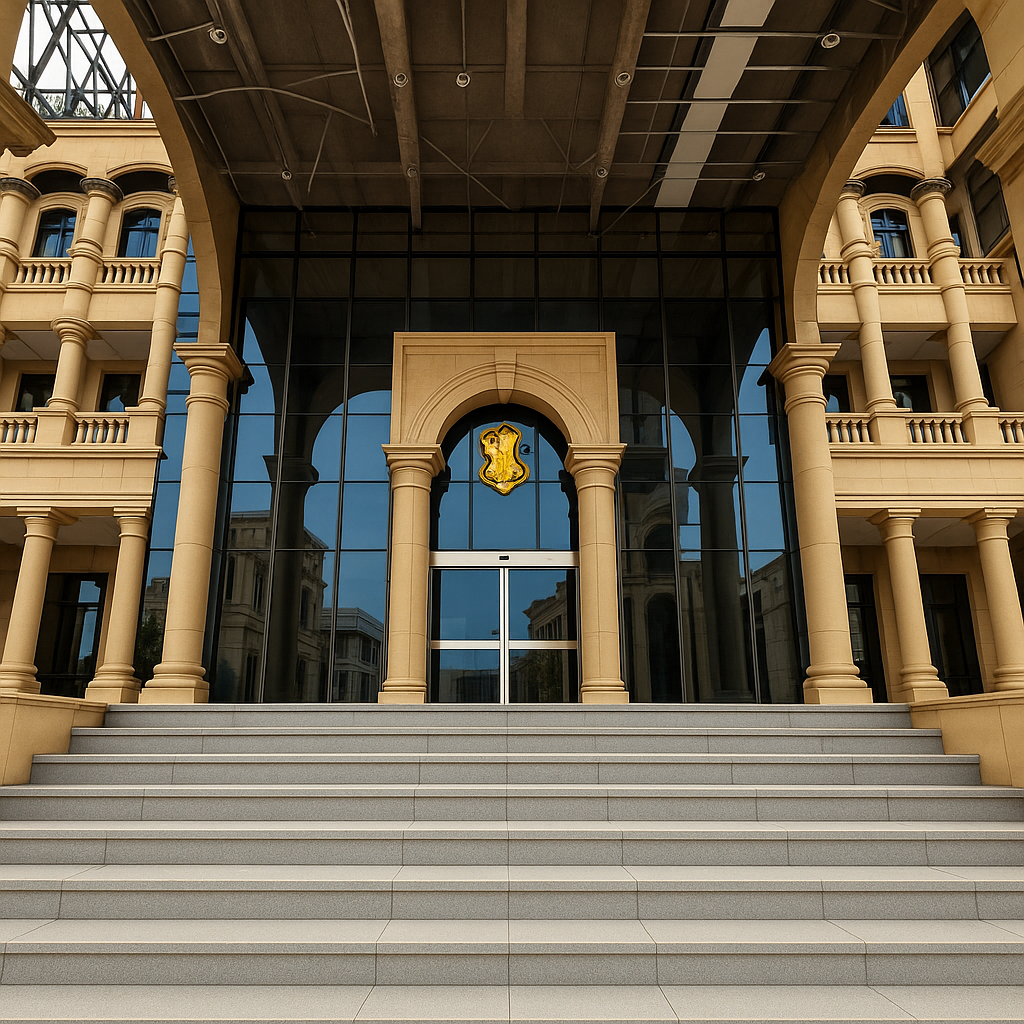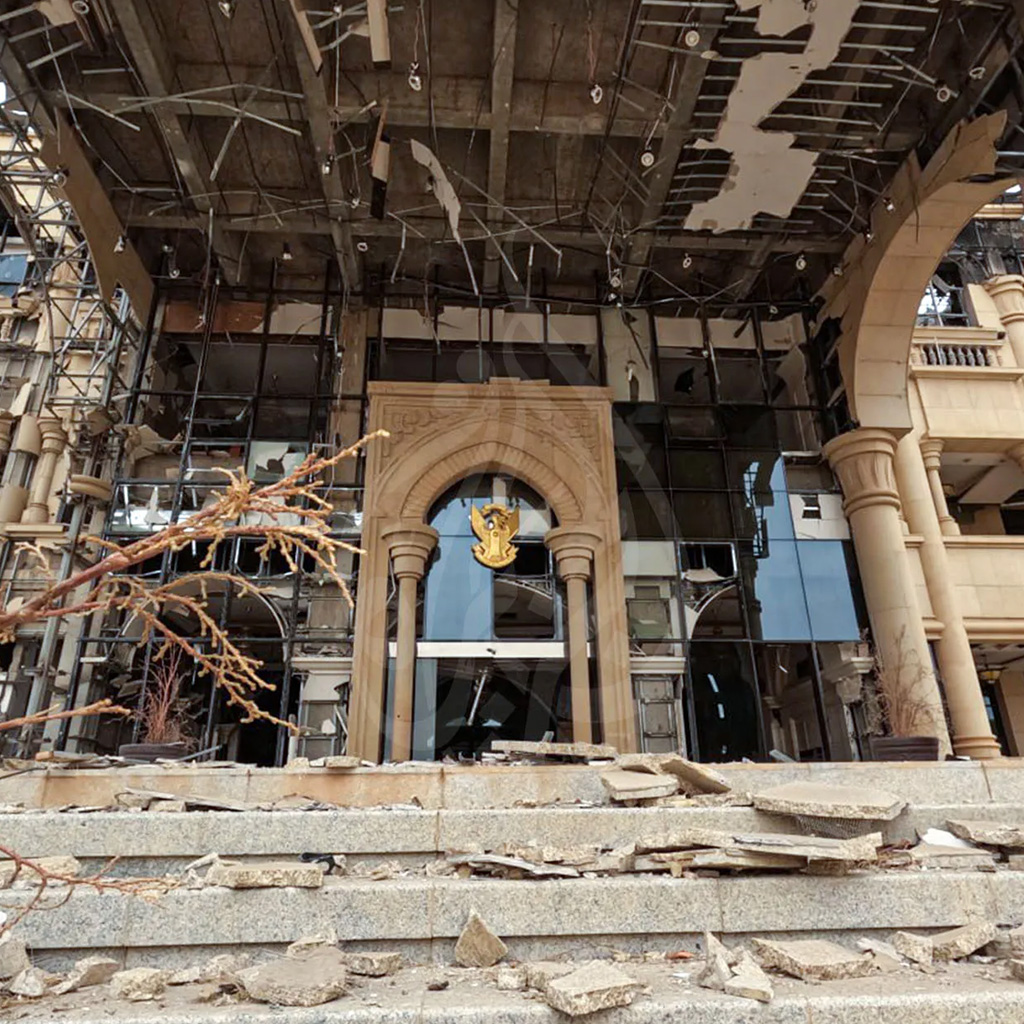
Initiative of the :
For Peace Sudan
For decades, since its independence in 1956, Sudan has suffered from the absence of a unifying national vision for its people. Various factors have contributed to this fragmentation, the consequences of which persist to this day. The true understanding of democracy as a system capable of accommodating the country’s ethnic, cultural, and religious diversity was never realized. Instead of being a source of strength, this diversity was undermined by the narrow-mindedness of successive Sudanese leaders, ultimately becoming a cause of Sudan’s disintegration. Tribal, partisan, and regional affiliations became the dominant forces in Sudan’s political arena, eroding the foundations of a cohesive Sudanese identity that could unite all its people.
“The democratic practice, which led to the fragmentation of sound political effort and the replication of parties that failed to bring the country to safety, rather, it led to the war that erupted on April 15, 2023.
And based on what has been mentioned, the Initiative for Peace is launched as a social, political, and intellectual incubator comprising numerous entities and members of diverse backgrounds, to reach the desired Sudanese state through comprehensive social reconciliation and an undiminished national consensus—paving the way for future generations to achieve their dreams and aspirations. The initiative presents its vision as a document upon which opinions, ideas, and alliances are built, leading to the modern civil state.

Concept
The Initiative for Peace is a social, political, intellectual, cultural, and economic endeavor that adopts dialogue as its core methodology to address national issues of concern to all Sudanese. It serves as an umbrella for initiatives that drive comprehensive reform, ultimately leading to the establishment of the desired civil state.

A modern Sudanese state, composed of a diverse society, united in citizenship, justice, and sustainable peace—where democracy thrives, institutions are strong, and the rights of all people are guaranteed under the rule of law.

Message
Harnessing and directing energies to achieve peace and comprehensive reform.

Befor the war

During the war

What We What we wish for

Befor the war

During the war

What We What we wish for

Befor the war

During the war

What We What we wish for
IN SUDAN
The world is deliberately closing its eyes to what is happening in Sudan
Objectives and Overall Goals
- Building a Modern Sudanese Civil State
- Supporting the Armed Forces and Strengthening National Unity
- Defending Human Dignity and Fundamental Rights
- Participating in Government Policy-Making
- Drafting a Comprehensive National Constitution
- Combating Poverty and Unemployment
- Ensuring Sustainable Development and Protecting Freedoms
- Fighting Corruption and Ensuring Accountability
- Developing an Independent and Attractive National Economy
- Improving Public Services for Citizen Welfare
- Empowering Youth in Education, Employment and Politics
- Advancing Women’s Rights and Public Participation
- Strengthening Unions, Civil and Volunteer Organizations
- Raising Societal Awareness and Reforming Public Discourse
- Promoting Noble Values and Ethical Conduct
- Safeguarding National Sovereignty and Strategic Governance
- Sustainable Management of Natural Resources and Environment
- Fostering Scientific Research, Arts and Intellectual Property
- Smart Partnerships for Responsible Media and National Unity
Foundations of the Initiative for Peace
1. Divine Religions and Customs
As a unifying and empowering force, drawing from their moral and civilizational framework in all their diversity—serving as a source of shared culture and collective identity.
2. Sudanese Unity
As a civilizational necessity, achieved through gradual efforts toward integration among all regions and communities.
3. Right of Citizenship
Citizenship is guaranteed to every Sudanese in accordance with established laws, regulations, and legal principles.
Facts About Sudan
Core Principles of the Initiative for Peace
Preservation of Sudan's Sovereignty and Stability
Maintaining Sudan as a fully independent and stable nation, serving as the unifying homeland for all Sudanese people.
Collaborative Constitution-Making and Comprehensive Reform
Partnering with all political forces to:
- Establish a permanent national constitution
- Achieve a complete cessation of hostilities
- Implement comprehensive national reform
Ensuring Conditions for Democratic Transition
Creating the necessary political environment for:
- Conducting free and fair elections
- Building a state based on citizenship and rule of law
Third
Four
Sixth
seventh
Eighth
General Policies and Programs :
To achieve its objectives and general political goals, the Peace Initiative adopts the following approaches:
1. Collaboration with Sudanese Entities:
Cooperating with various Sudanese entities and all political and social factions on common grounds, encouraging dialogue among them to reach consensus and mutual agreement.
2. Balancing National and Humanitarian Principles:
Reconciling national and humanitarian principles as essential for political action, maximizing areas of agreement, and minimizing division and tension.
3. Focus on Practical Program Implementation:
Concentrating on practical programmatic implementation to advance the nation and its institutions.
4. Utilizing National Competencies:
Harnessing national energies and competencies that combine capability, integrity, and genuine national belonging to accomplish the required construction and advancement.
5. Enhancing Participatory Approaches:
Actively promoting participatory methods and engaging with decision-makers at all levels of responsibility.
6. Prioritizing Consensus Over Conflict:
Presenting a consensual approach before entering competitive or contentious situations to achieve comprehensive democracy.
7. Balanced Stance Toward Governments:
Adopting a balanced approach in dealing with governments, categorizing political and national forces into opposition and loyalists fairly.
8. Accountability and Government Oversight:
Strengthening the principle of linking responsibility with accountability, positively influencing government performance, and monitoring through parliamentary, political, and media work, while adhering to transparency and integrity standards.
9. Gradual Reform and Public Participation:
Adopting a gradual approach to societal advancement and reform, involving various sectors and segments in public work.
10. Rejecting Extremism and Discrimination:
Avoiding all forms of fanaticism, rejecting discrimination based on religion, ethnicity, sect, or region, and denouncing terrorism and extremism.
11. Commitment to Judicial Independence:
Committing to the principle of utilizing, protecting, and preserving the judiciary and justice institutions.
12. Firm Rejection of Arms Proliferation:
Absolutely rejecting the spread and circulation of arms among civilians and urging society to do the same.
Programs and Means to Achieve the Goals
Institutional Building of the Initiative
Establishing the initiative’s institutions with transparency, governance, and quality standards in their performance, operations, and management.
Political Awareness and Capacity Building Programs
Developing programs to enhance political awareness and build capacities for members at all levels through political education, dialogue, rehabilitation, and training.
Leading Practical Initiatives for Peace and Development
Spearheading practical initiatives to achieve peace, stability, and prosperity for the Sudanese people.
Establishing Research Centers
Creating centers to conduct necessary studies and research for implementing the initiative’s goals.
Building an Effective Communication System
Developing a communication system that enables active participation by members and enhances coordination among the initiative’s institutions.
Utilizing Media and Communication Tools
- Employing all available media and communication means to convey the initiative’s ideas and positions to citizens and the public.
Publishing and Organizing Conferences
Issuing bulletins, magazines, newspapers, and books, as well as organizing and participating in conferences.







